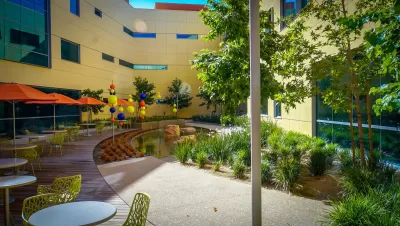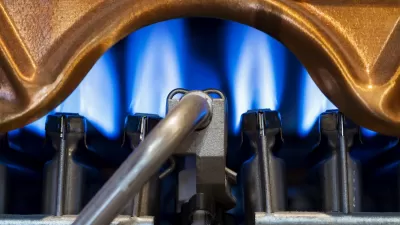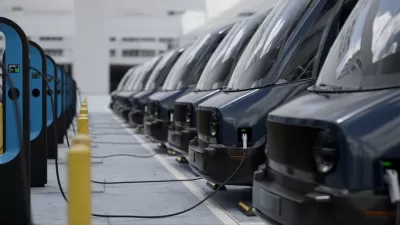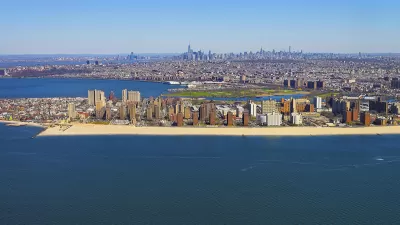The heating and cooling of buildings must be addressed if the United States is going to curb its emissions.

The Green New Deal (GND) had a lot to say about making American buildings more efficient. Proposals for creating better building efficiency were among the most criticized before the first bill on the issue was voted down. But there’s no getting around the role heating and cooling buildings plays in climate change. "Buildings are responsible for about 40 percent of the greenhouse gases in the US. Those emissions come, in part, from the fossil fuels (primarily natural gas these days but also heating oil) burned to heat (and cool) the water and space inside buildings," David Roberts writes for Vox.
While some have characterized policies to limit building emissions as unworkably bureaucratic, there are many cities and states already addressing the issue. Policies in California, like rebates offered by the Sacramento Municipal Utility District, push for electrification in new buildings. In New York City, legislation is trying to take on existing buildings. "The city council is now considering a remarkable bill, championed by Councilmember Costa Constantinides, that would mandate a 40 percent reduction in emissions from large buildings by 2030, rising to 80 percent by 2050," Roberts reports.
Cities like Minneapolis, Boise, Boulder, and Washington D.C. also have policies in the works to address these issues. Supporters of the GND hope federal legislation can learn from the successes of local level policies.
FULL STORY: The Green New Deal aims to get buildings off fossil fuels. These 6 places have already started.

Maui's Vacation Rental Debate Turns Ugly
Verbal attacks, misinformation campaigns and fistfights plague a high-stakes debate to convert thousands of vacation rentals into long-term housing.

Planetizen Federal Action Tracker
A weekly monitor of how Trump’s orders and actions are impacting planners and planning in America.

Chicago’s Ghost Rails
Just beneath the surface of the modern city lie the remnants of its expansive early 20th-century streetcar system.

Bend, Oregon Zoning Reforms Prioritize Small-Scale Housing
The city altered its zoning code to allow multi-family housing and eliminated parking mandates citywide.

Amtrak Cutting Jobs, Funding to High-Speed Rail
The agency plans to cut 10 percent of its workforce and has confirmed it will not fund new high-speed rail projects.

LA Denies Basic Services to Unhoused Residents
The city has repeatedly failed to respond to requests for trash pickup at encampment sites, and eliminated a program that provided mobile showers and toilets.
Urban Design for Planners 1: Software Tools
This six-course series explores essential urban design concepts using open source software and equips planners with the tools they need to participate fully in the urban design process.
Planning for Universal Design
Learn the tools for implementing Universal Design in planning regulations.
planning NEXT
Appalachian Highlands Housing Partners
Mpact (founded as Rail~Volution)
City of Camden Redevelopment Agency
City of Astoria
City of Portland
City of Laramie





























